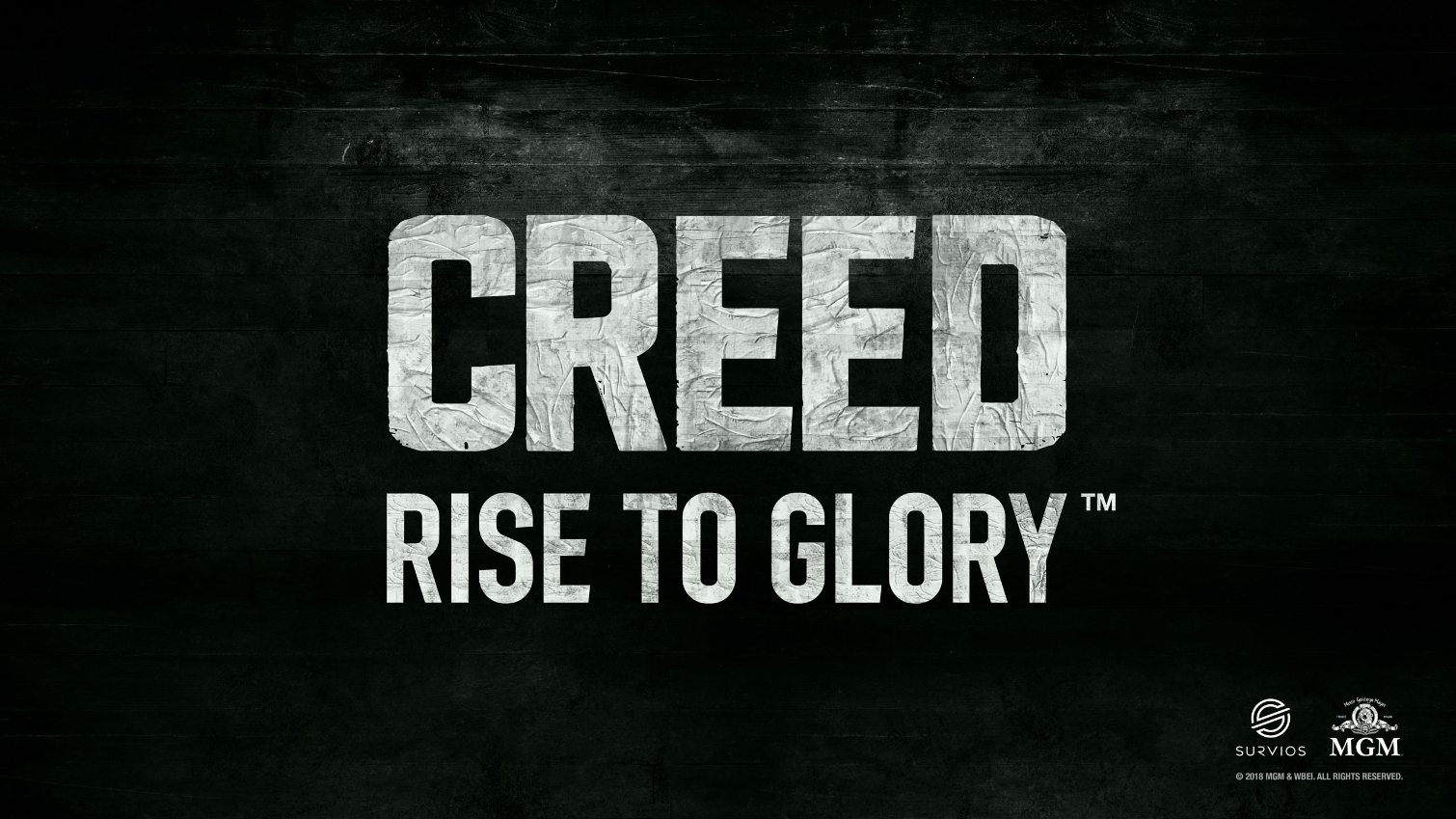Survios Believes It Solved The VR Melee Mechanic Problem
Survios believes that it solved the biggest problems that developers face when creating melee combat games for VR. The company's new tech is called Phantom Melee, it will debut next week at GDC.
Phantom Melee is coming via an upcoming virtual reality boxing game called Creed: Rise To Glory that Survios and MGM Interactive announced together. The game puts players in the shoes of Adonis Creed, and you train with Rocky Balboa to become a prized fighter. The game concept sounds all well and good, but we’re more interested in the Phantom Melee Technology that Survios invented to make melee combat work well in VR games.
“In all the VR experiences we build, we aim to make our players feel empowered, and Creed: Rise To Glory accomplishes this in a very cinematic and active way," said James Iliff, Survios co-founder, and Chief Creative Officer. “We’re throwing players into iconic boxing arenas; trading blows with the top fighters from the franchise, all while experiencing the thrills and showtime dramatics of the ultimate Hollywood-style boxing exhibition. With our new Phantom Melee Technology, the game provides an authentic, immersive experience that truly makes you feel like a boxing world champion."
Melee combat in VR games isn’t a new concept, but it doesn’t work as well as you would hope. VR systems offer tracked motion controllers, which enables you to swing a fist or a weapon, and force feedback hardware enables you to feel the moment of impact. But when you swing your arms in VR, there’s nothing to stop your real hands when you connect with a virtual object.
At present, developers have two options for dealing with melee combat in VR. They can allow meshes to penetrate, which would enable you to punch through an opponent, but the net effect of that can be disturbingly unnatural. The other options is to enable mesh collision, which separates your physical movement from your virtual avatar—effectively taking away 1-to-1. Both options create a disconnect that breaks the immersion. Survios believes that it solved the disconnect problem--not by avoiding it, but by embracing it and using it as an advantage.
Its Phantom Melee Technology lets you maintain 1-to-1 control of your avatar while also enabling mech collisions to create realistic impact visuals in fight sequences. Survios accomplishes this by enabling a shadow avatar (hence the name "Phantom") that follows the movement of your visual avatar until the moment of impact. The Phantom avatar follows your physical movement always, whereas the visible avatar uncouples from your physical movement when you land a blow.
Survios calls the coupling and decoupling of the two avatars Responsive Control, and its function enables several other mechanics that can be useful in several types of games. Mike McTyre, Head of Studio at Survios explained that the Responsive Control function enabled the developer to simulate lowered dexterity after suffering a serious blow. It also opened the door for Survios to implement a Virtual Stamina system that enables a stat progression within the game. As you progress through the story and your avatar grows as a fighter, so too will your ability to throw faster and more frequent punches.
Get Tom's Hardware's best news and in-depth reviews, straight to your inbox.
The Virtual Stamina system also helps to prevent players from exploiting the fighting mechanics. With it, Survios can stop you from flailing your wrists rapidly to punch unnaturally fast. Of course, you can do that if you wish, but your avatar will quickly suffer from fatigue, so you’d be better off conserving your energy. McTyre said that as a result, most people gravitate to playing Creed as it was intended.
Phantom Melee isn’t just for boxing games. McTyre said the technology would work well for any hand-to-hand or weapon-based melee game, so we could see sword fighting games with this sort of technology. Responsive Control could also work well for a damage system that limits the use of your limbs if you get shot in an FPS game, or to limit your control of the steering wheel when you crash in racing games.
Survios created Phantom Melee Technology in-house, for use in-house, but it's showing the technology off now so that other developers could use it as inspiration for similar mechanics.
Last year, Survios showed off the Fluid Locomotion System for Sprint Vector, and several developers created variations of that locomotion system. This year, the company is hosting a talk at GDC to explain exactly how it created Fluid Locomotion. McTyre said he wouldn’t be surprised if Survios reveals the details behind Phantom Melee Technology next year.
Kevin Carbotte is a contributing writer for Tom's Hardware who primarily covers VR and AR hardware. He has been writing for us for more than four years.
